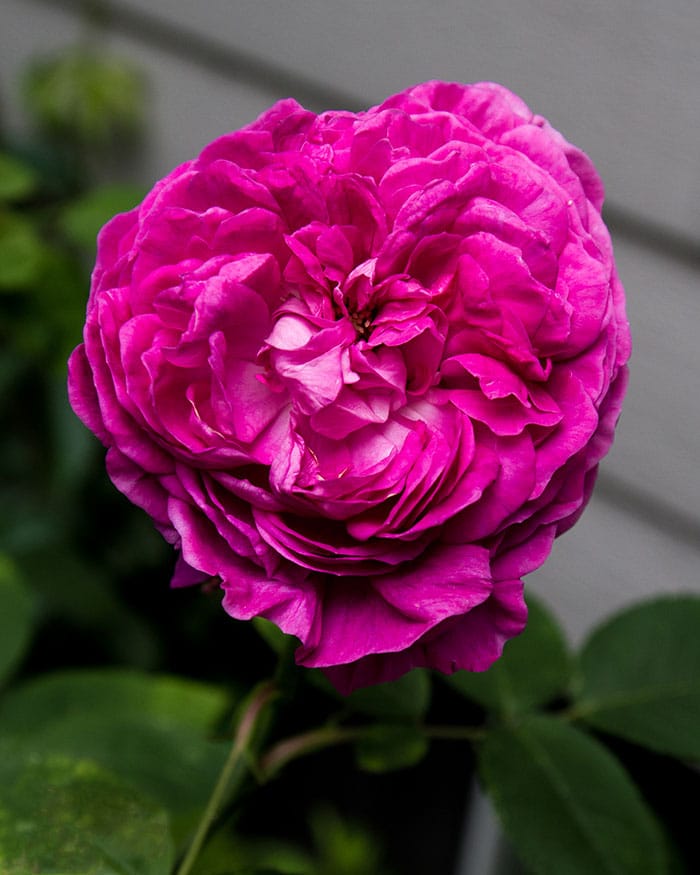
When it rains frequently, the constantly moist soil is wonderful for root growth (just so long as there is adequate drainage), and many plants make quick, impressive growth. In particular, my roses have been better than ever, and that must be due to the generous amount of moisture. I never did get around to giving every rose shrub a full spring feeding. Most got a dose of Epsom salt (even a few missed that) and some got fertilizer. Then I was distracted, and here it is time to fertilize them again. Here are tips for rose care in moist conditions.
But along with the benefits of more than adequate moisture, there are less welcome effects of so much water entering the soil. Of the three basic plant foods (nitrogen, phosphorus, potassium), nitrogen is the most water-soluble, quickly leaching away in rainwater as it filters through the soil. That means roses will need a bit more nitrogen than usual in their mid- and late-summer feedings. Normally, I would use a rose fertilizer with a higher middle number (more phosphorus), such as 8-12-4, to encourage rooting and bud set. But in this wet season it would be wise to give roses something like 10-10-10. (I have a box of water soluble 20-20-20 in the garage, and will cut the measured dose in half to achieve 10-10-10.) Using a granular fertilizer with numbers close to 10-10-10 would be even better because it can be applied without adding more water to the root zone.
And there’s more. With so much wet soil around, fungus spores are sure to grow rapidly. My roses seldom have blackspot disease (Diplocarpon rosae), but that doesn’t mean that several weeks in heavily wet soil won’t overwhelm their inbred resistance. If that’s a concern in your garden, consider beginning a baking soda spray program now. The baking soda solution (and any other form of fungicide) must coat the rose foliage while it’s still healthy and before spores land. Fungicides are generally ineffective in stopping fungus infection when the leaves are already breaking out in spots and blotches. This is the baking soda formula developed at Cornell University in New York: to one gallon (4 L) water, add four teaspoons (20 mL) baking soda, four teaspoons (20 mL) vegetable oil and one teaspoon (5 mL) liquid dish detergent or insecticidal soap. Spray roses until it drips off the foliage, every four days. If blackspot and rust are chronic problems on rose shrubs, you might consider using Bordeaux mixture (syn. Bordo mix), a combination of copper sulfate and calcium carbonate. This will leave a visible coating on rose foliage, and you might not like that.

I have been researching the Epsom Salts lately, it is a myth apparently. Master Gardener Robert Pavlis has written a book on this subject: https://www.gardenmyths.com/epsom-salt-for-plants/
Thank you for the wisdom on fertilizing roses….this is the first year I have planted roses and they growing beautifully…. and the Baking Soda solution I will try. I enjoy your website.